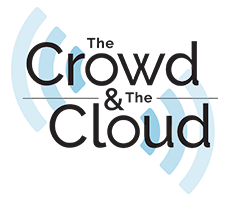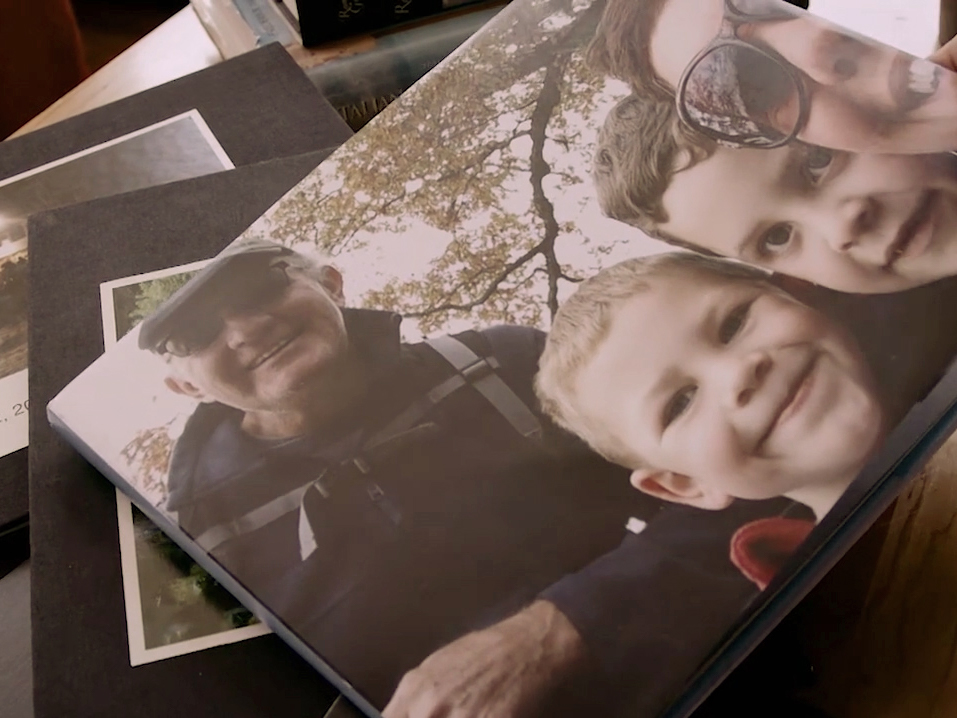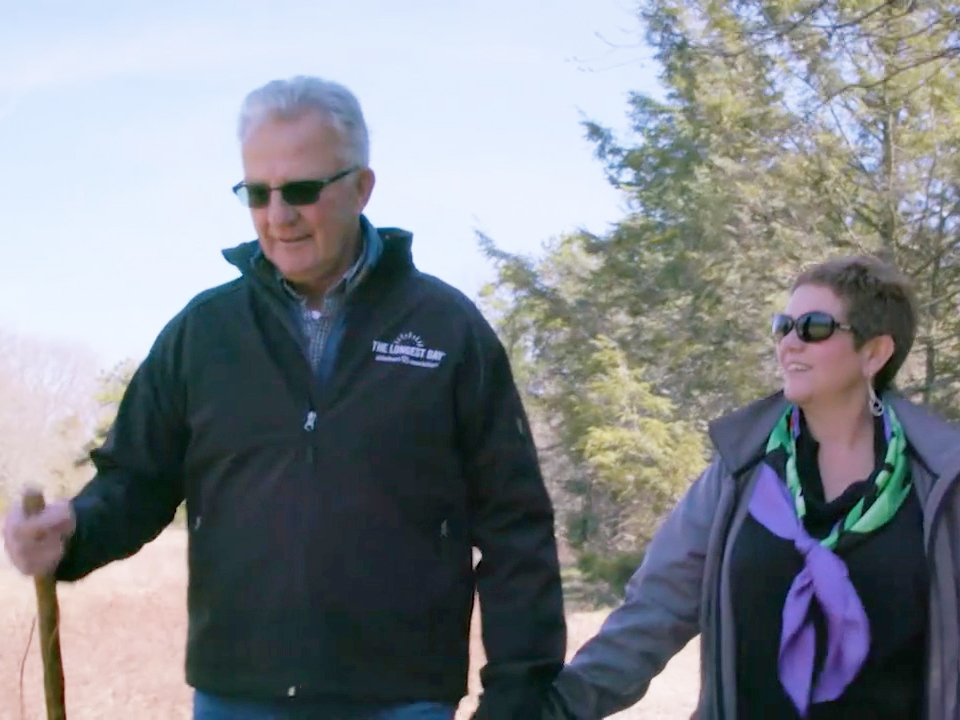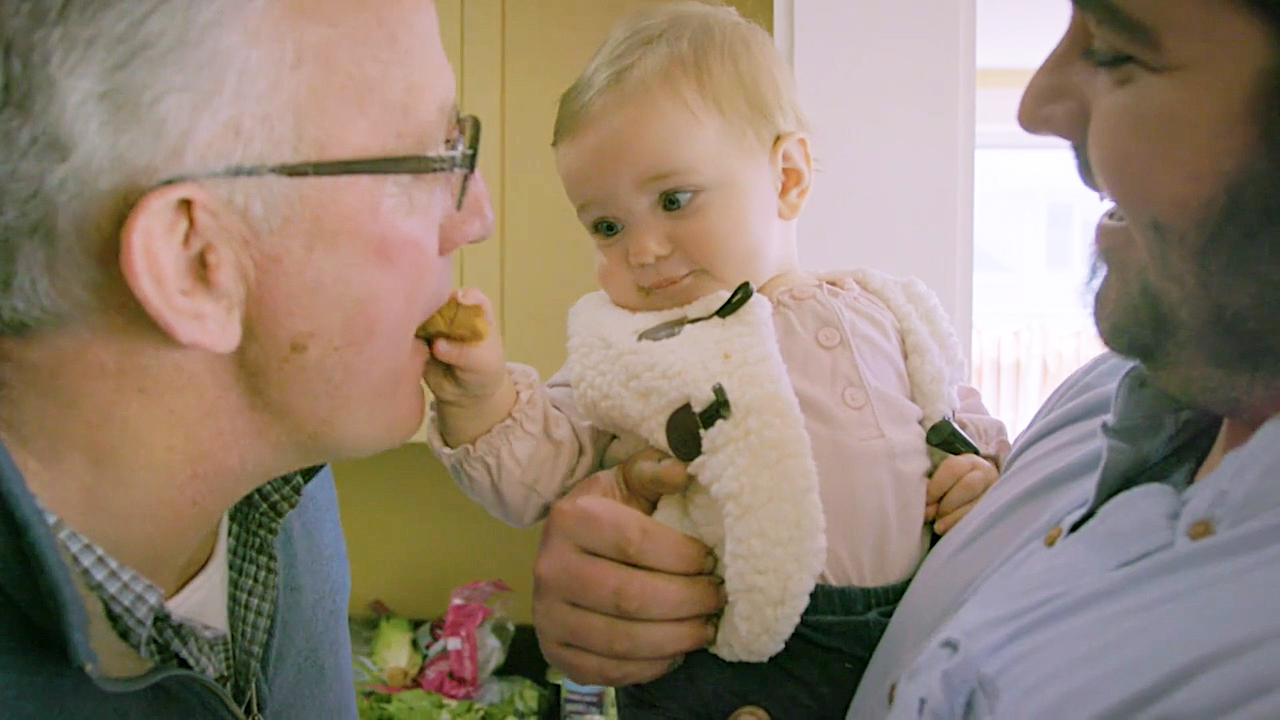
Newsletter
Sign up and stay in-the-know about The Crowd & The Cloud and the world of citizen science.


Judy, can you talk about the first signs, the first moments where you realized that something wasn't quite right with Steve?
There were a few little things going on through the years. He did the living room over one time, five years ago. He painted it, moved furniture, hung pictures, this and that, and then he took a nap a couple days later, and woke up, and said, "What happened to the living room?" There were little things like that, that we could chalk it up to, he's overtired, he's overworked, he was always working his job and doing projects here.
Five years ago, Steve came home from work early one day, and I had the house full of kids. I said, "What are you doing home early?" He said, "I'll tell you when the kids are napping." After the kids went down, he was so embarrassed. He said, "I just got a poor performance review at work," and nothing like that had ever happened to him. He was always held in the highest regard at work. We made an appointment with his PCP immediately. We went in, and he asked him a few questions. He said, "Yeah, there's a problem."
After a battery of tests with the neurologist, and neuro psych evaluations over a five month period, we still didn't think Alzheimer's. Even though Steve's mother has Alzheimer's, and that was our worst fear, we thought, again, it's tiredness, it's overwork. But in that time, I was noticing he would only go to work three days a week. There were some days that he would wake up and say, "I can't go to work today. I can't handle that." Or he'd go to work, and he'd call me and say, "I can't find my keys anywhere." I'd drive into Boston, and find them in his jacket pocket. We were noticing things up to 10 years ago, but really within the last 5 years is when we really started [noticing].
And then came the diagnosis...
The diagnosis came early October 2011. After we had his neuro-psych evaluation, they told us there was definitely mild cognitive impairment, and that we should see a social worker, a neurologist again, and start to think about Steve making an exit strategy from work. We were shocked. Again, we thought it was going to be a sleep disorder, or something, or folic acid deficiency. That was our hope. He was diagnosed officially after that, when we went to see the neurologist who did a PET scan and a lumbar puncture immediately, and within three weeks had him diagnosed. By the end of October, he finished up work and left his job.
I think because Steve was so young, it was right before his 59th birthday, they wanted to push for the PET scan and the lumbar puncture. With the lumbar puncture, there's three bio-markers, that if they're present, it's almost conclusive that it's Alzheimer's, along with the information from the PET scan. The combination of brain cells, spinal tap, family reporting, self reporting, performance at work gives a more definitive diagnosis. It's probable, with 95 percent accuracy, with all of those combined. We sat there, and you can tell the neurologist's heart was breaking. He said, "This is Alzheimer's, and let’s talk about how we'll proceed from here."
We run into people all the time you have horror stories, because they didn't have the lumbar puncture, and they didn't have a PET scan. Insurance wouldn't approve it, or their neurologist wouldn't push for it, and you live in limbo. Steve and I have a beautiful relationship, but had I not known this was his diagnosis, I would've thought maybe he was losing interest in me, in work, in life. It was so important for us to get that definitive diagnosis.

Steve and Judy with their grandkids.
How did your life change with the diagnosis?
We wanted to plan to live our life the fullest, in whatever time, and I asked the neurologist. I said, "In all reality, what can we expect for good years with Alzheimer's? Can we expect 10 years, can we expect two years?" He said, "Two years is a short period of time. 10 years is long, but I would plan on 4 really good years, and then things can change." He's been right on the money about that. While you're digesting this kind of diagnosis, and trying to make these big, huge life plans to make your life meaningful with what time you have left together, at the same time, we were also fighting so hard to show the world, and the few people we did tell at the time, that we were just A OK, and life was not going to change for us. Even though life was already changing for us, just with the diagnosis.
Finding that balance, with the diagnosis, especially when you have younger onset Alzheimer's, is challenging. Steve is so grace-filled. He said, "We have two choices for how we can deal with this. We can be happy, or we can be sad, and I think we'll have a lot more fun with each other, and with our children and grandchildren, if we choose to do this with a smile on our face, and with grace." He allowed himself to cry the day he was diagnosed. He said, "I wanted to watch our grandchildren play baseball."
How do you keep your relationship strong through the bad times?

Steve and Judy: "..in sickness and in health..."
Thirty-five years ago, we took wedding vows. “For better, for worse, for richer, for poorer, in sickness and in health.” In all actuality, when you're young, and you take those vows, you really have no idea what lies ahead. You hope you can live those out. One of the gifts of Alzheimer's is it's given us the proof that we can hold up, and honor our vows. We're proud of the way we have done that with each other.
Steve, can you describe what it's like to have Alzheimer's?
Steve: I guess that it's taking… It's a confusion. It's a draw, almost, in some places. You have to draw it out real big to keep going.
Judy: Sometimes I describe Alzheimer's, if you try to picture what it might be like, is if you imagine going on a vacation, and the place that you book has electricity, running water, air conditioning. Extra little flourishes that make the vacation just perfect. Little by little, you lose some of those amenities. The cable goes first. The electricity get shaky. There's no more running water. Those kind of basic comforts. If you liken it to going on a beautiful, plush vacation home, and kind of ending up in a cabin, maybe a rustic cabin. That's how I describe it sometimes. We're watching some of the amenities trickle away from us.
Can you talk a little bit about the family history with Alzheimer's?
Steve's mother was diagnosed with Alzheimer's at 77. That's not considered early or younger onset Alzheimer's disease. Steve was diagnosed at 58, and anything before the age of 65 is considered early onset. I like to call it younger onset to take the confusion out that it doesn't necessarily means early stage. It means your age more than the stage of the disease. Steve's mother getting it at 77, supposedly that has nothing to do with Steve getting it as a younger onset. That's what we've been told by doctors. Now, Steve does carry the APOE4 gene, which does make it more hereditary. Our kids have not looked into that. We have not explored that yet, we're not there yet. Supposedly, Steve having Alzheimer's has nothing to do with his mother having it. I don't believe that.
It's so big, and I try to think back on, would we have wanted to know early on? I don't think we would've done a whole lot different, other than maybe been sad longer. That might be a good reason. But all that being said, this is why Steve's involved in clinical trials, and memory studies, and brain imaging studies. For our children's sake, for their children's sake, for everybody's children's sake. If we have more people get involved with clinical trials, and studies, it's really going to make a difference for the future of this disease, and understanding it. It's not fully understood yet.
Tell us a little bit about the clinical trial you’re involved in, what do you hope to accomplish?
The clinical trial that Steve is involved in is called the NOBLE trial. The drug is T 817MA, and he's been involved for a year now. We don't know whether he's been getting the drug, or a placebo, but because he's been involved for a year, starting next month, he gets the drug for six months. It's supposed to be a neuron regenerator, and encourage neuron growth. It was a study that would allow people, even into the moderate stage of Alzheimer's, a lot of trials that preclude you from being involved if you've gone further than the beginning stages of Alzheimer's.
This is an exciting trial because we're hoping that it has encouraged, or will encourage, regrowth of these neurons, and make a difference for the future. Like the facilitator of the trial said to us in the beginning, of course our hope is that this works, but if it doesn't, it's another thing we can cross off the list, and that's just as important in research, and moving forward towards a cure. (C&C: this is very much what Chris Schaffer and colleagues also feel: the faster they can crowdsource the analysis of their research results, the quicker they can determine if they’re on the right track or need to change course. Getting rid of incorrect hypotheses can be very important in the search for the right answers!)
He's also involved in a memory study, where he goes annually, and when we first went, they said, "Till death do us part. And actually, after death, could we have your brain?" They said a lot of people walk out of the room with that question, but Steve had absolutely no problem with that. He said, "Take it."

Steve's granddaughter offers him a bite!
Steve is very practical. When all this began, and he could realize that the people around him were having to do more, and he could do less. He stood up with a group of our friends at one event: we had done a fundraising event for Alzheimer's Association. He said, "I'll do what I can do by getting involved with clinical trials and memory studies." He was involved in a two month, in-depth brain imaging study, which was grueling for him, because he would have days where he would have a couple MRIs. Again, he does it for our children.
Then we get involved, even in social engagement programs like the Pairs program through BU that partnered Steve with a first year medical student, to spend time socially engaged with him four hours a month. The purpose is to create social engagement for people living with Alzheimer's, with a younger, energetic person. And then for the medical student, it provides them an in-depth insight to a person living with Alzheimer's. Someday, when they're a doctor, they're going to get a half hour at a time with a patient. And they're going to know nothing about their home studies, their home struggles, or nothing about how they relate with their family while living with this disease. This offers that opportunity for both of them to be engaged, and learn from each other. We have such a positive experience with that.
How do you guys maintain advocacy for Alzheimer’s research in your lives?
Steve and I went last week to Capitol Hill for an advocacy forum, and met with our Congress people, and representatives, to ask for $400 million to be allocated in this upcoming year towards research. It's a vicious cycle. If we don't get the money for this research, we're not going to draw in brilliant young researchers to look for a cure. We need to push through this funding. It needs to be a priority. As you can see, looking at Steve, the face of Alzheimer's is not just a 95 year old person drooling in a nursing home. It's the face of many people.
Advocating is very personal to us for two reasons. First and foremost, we don't want our children to go through what we're going through. We don't want our grandchildren to go through what our kids are going through. We want to change that. We want this disease, at the very least, treatable.
We'd like to see a day when Alzheimer's is just a memory. When you're in the prime of your lives, like Steve and I, you're working, you love your jobs, and you love your active life, and you get this diagnosis. You're told you can't do a lot because of it. You can't drive, you can't work. Your conversations become very different with friends, because you're not talking about traffic on the way to work, or about how things are going in the office. Advocating gives us a job we can do. Steve and I are doers. We want to take up our tools, and fight to end Alzheimer's, and we're happy we can do that, and we want to do it while we can do it.
Our hopes for the years ahead that we have together are, number one, we hope we can stay together. It may be naive, but our hope is to have Steve stay here until the end. We hope that we can show other people that this doesn't have to be done in a horrific, depressing way. We hope that we continue to love each other, and know that love, because we say we're blessed. We have 60 years of love crammed into the 35 years we've had together so far, and probably our greatest hope, and we believe it will be real, is that everything else might fade but our love for each other never will.
